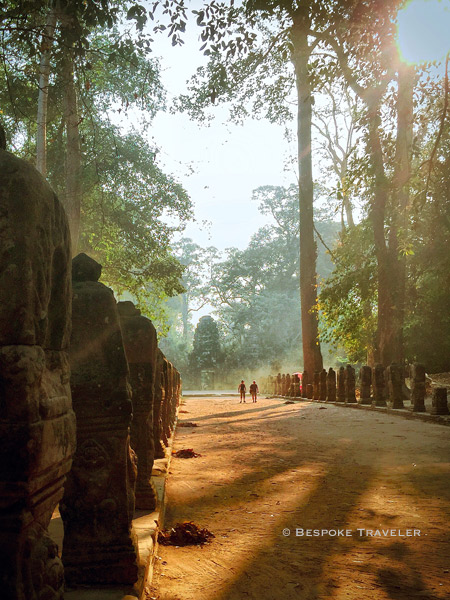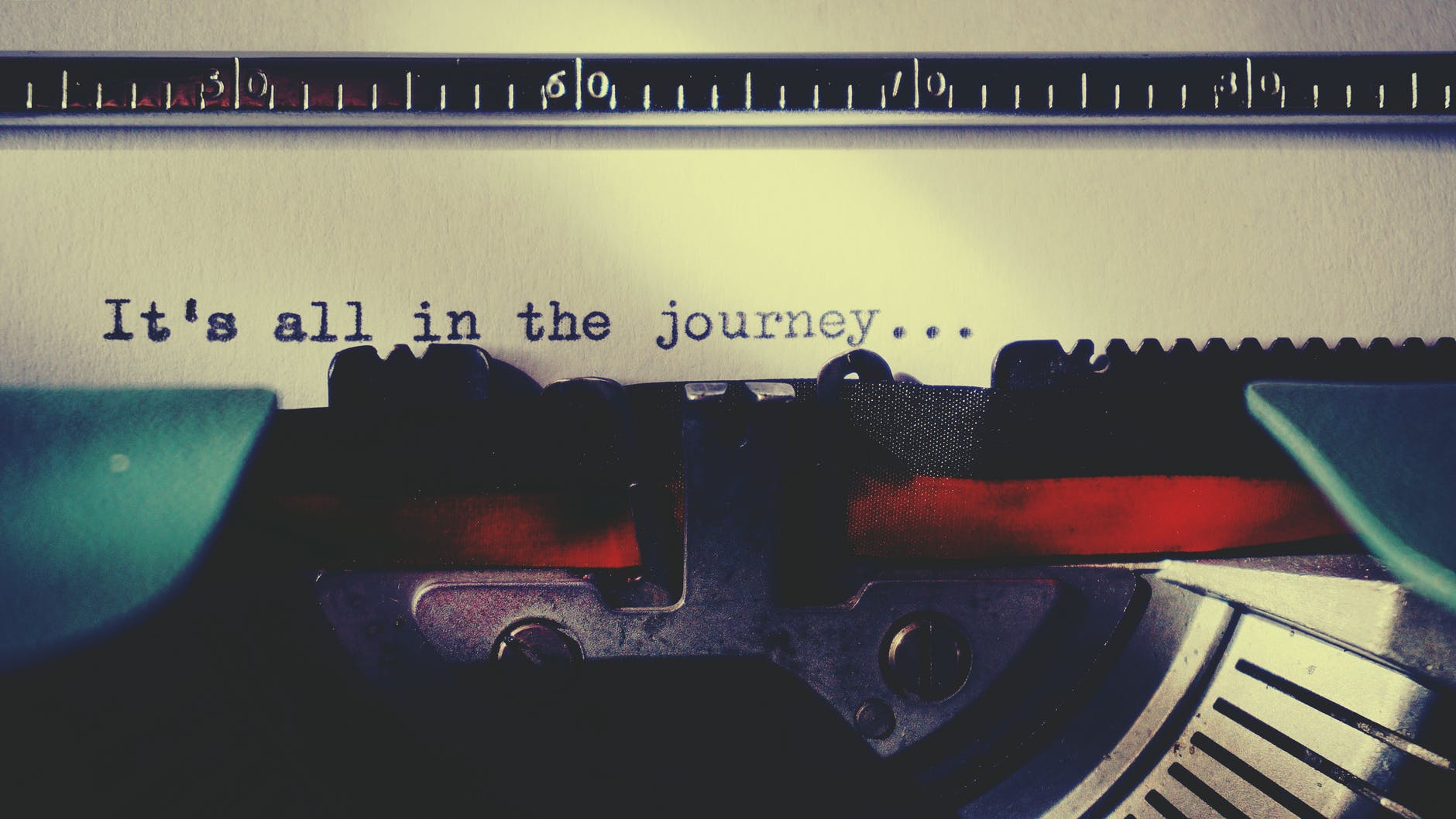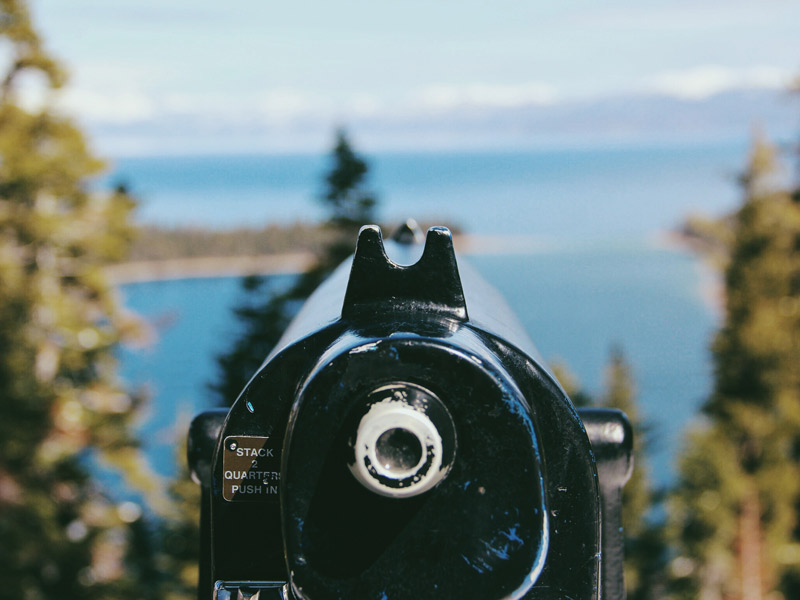 Catching sunrise was part of my childhood education. My father was cognizant with the proverb, “Early to bed, early to rise makes a man healthy, wealthy, and wise,” and he used it as a family mantra. Waking while the sky scintillated shades of saffron was imbued with every virtue imaginable. Naturally I resisted, certain that late night revels were better than dawn perambulations. I became a twilight worshipper, instead; enthralled with the descending incandescence, the kindling of scattered celestial bodies, the realization I was a speck of cosmic dust connected to an infinite universe of unknowable properties. At university I forsook the brusque chill of daybreak for the pleasures of nocturnal pursuits: midnight parties, two am snack runs, insomniac chats. Sometimes these sessions led to witnessing a new sun peeping over the horizon, but as a matter of accident not intent.
Catching sunrise was part of my childhood education. My father was cognizant with the proverb, “Early to bed, early to rise makes a man healthy, wealthy, and wise,” and he used it as a family mantra. Waking while the sky scintillated shades of saffron was imbued with every virtue imaginable. Naturally I resisted, certain that late night revels were better than dawn perambulations. I became a twilight worshipper, instead; enthralled with the descending incandescence, the kindling of scattered celestial bodies, the realization I was a speck of cosmic dust connected to an infinite universe of unknowable properties. At university I forsook the brusque chill of daybreak for the pleasures of nocturnal pursuits: midnight parties, two am snack runs, insomniac chats. Sometimes these sessions led to witnessing a new sun peeping over the horizon, but as a matter of accident not intent.
 My first premeditated sunrise occurred on a visit to Acadia National Park in Maine. Cadillac Mountain sits along the northern Atlantic as the peak to receive first light in the United States. From its summit the dotted harbor islands swell to silhouetted drops against a mauve mist. The lichen covered granite slope blushes at sight of the ascending sun. Watching the morning awaken upon this precipice was akin to being present at earth’s creation. It gave me a taste for dawn rising I never quite abandoned. Camping trips later cemented the glories of early mornings. Sleeping al fresco forces the body to shift into nature’s rhythm. The result is rewarding — tranquility without eldritch overtones. I wake to the twitter of winged greeters while the fragrance of bedewed leaves trembles in the air. Rustlings in the bush affirm that other creatures are busily starting their day. There is hope in a sunrise that cannot be found at sunset.
My first premeditated sunrise occurred on a visit to Acadia National Park in Maine. Cadillac Mountain sits along the northern Atlantic as the peak to receive first light in the United States. From its summit the dotted harbor islands swell to silhouetted drops against a mauve mist. The lichen covered granite slope blushes at sight of the ascending sun. Watching the morning awaken upon this precipice was akin to being present at earth’s creation. It gave me a taste for dawn rising I never quite abandoned. Camping trips later cemented the glories of early mornings. Sleeping al fresco forces the body to shift into nature’s rhythm. The result is rewarding — tranquility without eldritch overtones. I wake to the twitter of winged greeters while the fragrance of bedewed leaves trembles in the air. Rustlings in the bush affirm that other creatures are busily starting their day. There is hope in a sunrise that cannot be found at sunset.
 My travel life has accustomed me to the red-rimmed sun peeking over the horizon, bathing cities, shores, and mountain tops. Yet, the more dawns I experience the more I treasure them. I have come full circle waxing lyrical about the benefits of early rising, recommending its productivity benefits to sundry, quoting Aristotle and Ben Franklin aphorisms. My family would be proud.
My travel life has accustomed me to the red-rimmed sun peeking over the horizon, bathing cities, shores, and mountain tops. Yet, the more dawns I experience the more I treasure them. I have come full circle waxing lyrical about the benefits of early rising, recommending its productivity benefits to sundry, quoting Aristotle and Ben Franklin aphorisms. My family would be proud.
 Lately, watching an orange orb slip past the silver Pacific in southern California I admonished an intractable teenage companion. “The early bird catches the worm,” I said to her when she grumbled about getting up at an “unholy hour.” As the words were crisply spewing out of my mouth with the same smug inflection my father used when speaking the phrase, I realized early rising isn’t the only thing I have been emulating from my parents. The week before I cringed when I blurted out two of their pet expressions in conversation. I had sworn an oath in my youth to never utter “in my day,” and “you don’t mean that,” to anyone. Now I had put them into a sentence. I catch myself imitating many of their mannerisms, gestures I could not stand growing up: cracking knuckles while watching a movie, washing and saving resealable plastic bags for later use, retelling stale anecdotes. A nightmare I wished to evade has arrived — I have turned into my parents!
Lately, watching an orange orb slip past the silver Pacific in southern California I admonished an intractable teenage companion. “The early bird catches the worm,” I said to her when she grumbled about getting up at an “unholy hour.” As the words were crisply spewing out of my mouth with the same smug inflection my father used when speaking the phrase, I realized early rising isn’t the only thing I have been emulating from my parents. The week before I cringed when I blurted out two of their pet expressions in conversation. I had sworn an oath in my youth to never utter “in my day,” and “you don’t mean that,” to anyone. Now I had put them into a sentence. I catch myself imitating many of their mannerisms, gestures I could not stand growing up: cracking knuckles while watching a movie, washing and saving resealable plastic bags for later use, retelling stale anecdotes. A nightmare I wished to evade has arrived — I have turned into my parents!
 Genetically speaking, I suppose it was bound to happen. Culturally and philosophically, however, it was a shock. A large portion of my existence was avoiding anything they enjoyed while embracing the things they shunned, convincing myself I was nothing like them. Experience and life, of course, have changed my tune. Personal characteristics and my parents’ dispositions have mingled into a somewhat oddball glob. In the meantime, my youthful élan has given way to maturer apprehensions as surely as dawn accedes to dusk. These terrors, the same my parents had, are a waste of time. I know that as my younger self knew it, but I comprehend better why they exist, why my parents were burdened with them. In partially behaving like them, in becoming them, I understand my parents better too. They have altered from incomprehensible law-givers and flawed protectors into humans struggling to survive, to find joy, to inspire others.
Genetically speaking, I suppose it was bound to happen. Culturally and philosophically, however, it was a shock. A large portion of my existence was avoiding anything they enjoyed while embracing the things they shunned, convincing myself I was nothing like them. Experience and life, of course, have changed my tune. Personal characteristics and my parents’ dispositions have mingled into a somewhat oddball glob. In the meantime, my youthful élan has given way to maturer apprehensions as surely as dawn accedes to dusk. These terrors, the same my parents had, are a waste of time. I know that as my younger self knew it, but I comprehend better why they exist, why my parents were burdened with them. In partially behaving like them, in becoming them, I understand my parents better too. They have altered from incomprehensible law-givers and flawed protectors into humans struggling to survive, to find joy, to inspire others.
 I could mourn the inevitable, recoil at the profligacy with which their habits have overtaken my life. I could keep a sharp lookout for the next time I set my jaw like my father or pinch my nostrils in disgust like my mother. I can vow not to leave dirty napkins underneath the sofa. I can be certain I’ll never wear turtlenecks in the spring. I can laugh at their foibles, telling myself how odd and so not like me my progenitors are. Heredity will out, though.
I could mourn the inevitable, recoil at the profligacy with which their habits have overtaken my life. I could keep a sharp lookout for the next time I set my jaw like my father or pinch my nostrils in disgust like my mother. I can vow not to leave dirty napkins underneath the sofa. I can be certain I’ll never wear turtlenecks in the spring. I can laugh at their foibles, telling myself how odd and so not like me my progenitors are. Heredity will out, though.  On the other hand, I could let it gloriously unfold. After all, getting up early to watch the sun is a privilege I am happy to have inherited. The extra hour of contemplation it provides, the way it uplifts the weary spirit — I know why my father enjoyed viewing sunrises, just as he predicted I would someday seek them out for myself.
On the other hand, I could let it gloriously unfold. After all, getting up early to watch the sun is a privilege I am happy to have inherited. The extra hour of contemplation it provides, the way it uplifts the weary spirit — I know why my father enjoyed viewing sunrises, just as he predicted I would someday seek them out for myself.
 I feared becoming more like my parents would obliterate my individuality. I was wrong. It roots the layers within me. It deepens the identity I forge. I will never be exactly them. I retain my credos, the right to my choices. But, their guiding mannerisms and practices comfortably creep in between like the first streaks of plum across the sleeping sky announcing sunrise. Pieces of heritage, for better or worse, which define my character. I have promised, however, not to say “rise and shine” to dusk lovers.
I feared becoming more like my parents would obliterate my individuality. I was wrong. It roots the layers within me. It deepens the identity I forge. I will never be exactly them. I retain my credos, the right to my choices. But, their guiding mannerisms and practices comfortably creep in between like the first streaks of plum across the sleeping sky announcing sunrise. Pieces of heritage, for better or worse, which define my character. I have promised, however, not to say “rise and shine” to dusk lovers.
TRAVEL NOTE:
At particular moments it is possible to observe a green flash on the upper rim of the rising sun. This phenomena is caused by differing air temperature layers enhancing refraction of the sun’s light separation. Sunrises over sea level and in-flight are the most likely locations to track this mirage.
Have you noticed behaviors similar to those of your parents in you? Are they things you embrace or pet peeves?
Discover more from Bespoke Traveler
Subscribe to get the latest posts to your email.





I have been observing with quietude, meditation, and sometimes photographing this two moments of the day: the dawn and its farewell to other places in the late afternoon. I am still learning its forms, its colors, its transformations, its movements, the climate, the moment and then I think about how much I have transformed myself over the years. These two moments have so much meaning for me: it is life / nature dialoguing with us. Your sensitive post reflects this with great intensity and delicacy. Thank you so much.
How sublimely you put into context the import of these “two moments of the day” and the ways in which they can transform us. I’m so honored that you found such beauty within my post and for contributing your lyrical contemplations upon the subject. Muito obrigado!